#Gaetano Previati
Explore tagged Tumblr posts
Text

Gaetano Previati, La Danza delle Ore.
#classic art#traditional art#art history#traditional painting#oil painting#19th century art#art details#art#classical art#art detail#contemporary art#artwork#1800s art#20th century art#academic art#artists on tumblr#british art#art study#fine art#german art#italian art#modern art#renaissance art#spanish art#victorian art#vintage art#arte#artista#pintura#gaetano previati
836 notes
·
View notes
Text

Gaetano Previati (Italian, 1852-1920)
Hashish Smokers, 1887
791 notes
·
View notes
Text

The Chariot of the Sun by Gaetano Previati (1907)
370 notes
·
View notes
Text
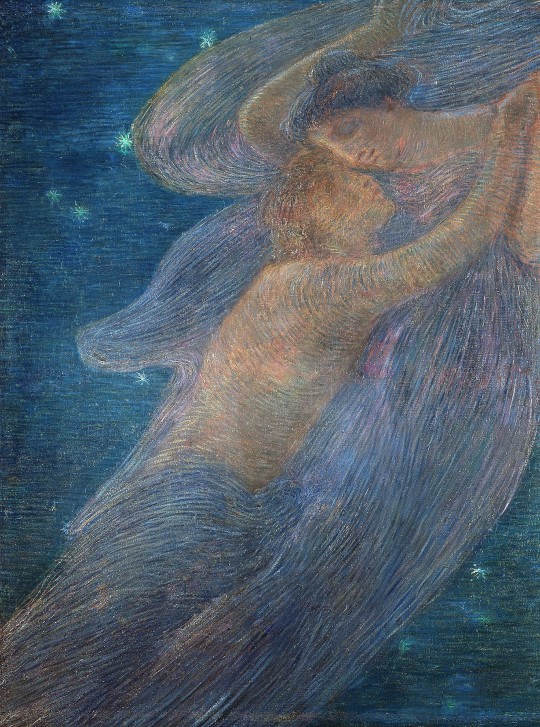
Gaetano Previati (1852-1920, Italian) ~ The Night, n/d
240 notes
·
View notes
Text
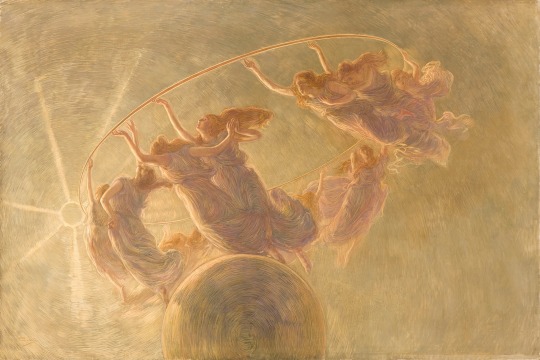
La danza delle Ore (The Dance of the Hours) by Gaetano Previati
#gaetano previati#art#symbolist#symbolism#divisionism#divisionist#dance#dancers#europe#european#italian#dancing#dances#ballet#opera#sun
345 notes
·
View notes
Text
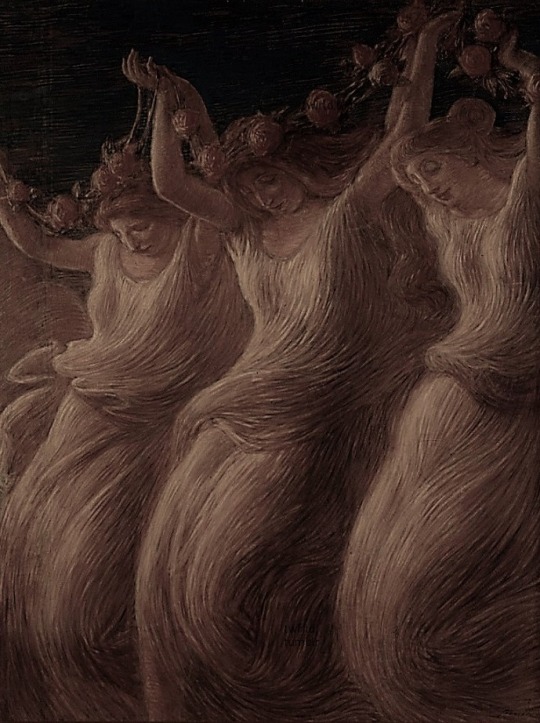
Gaetano Previati
434 notes
·
View notes
Text
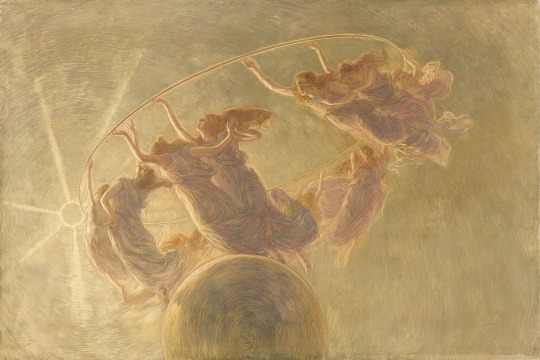
The Dance of the Hours (Gaetano Previati, 1899)
243 notes
·
View notes
Text
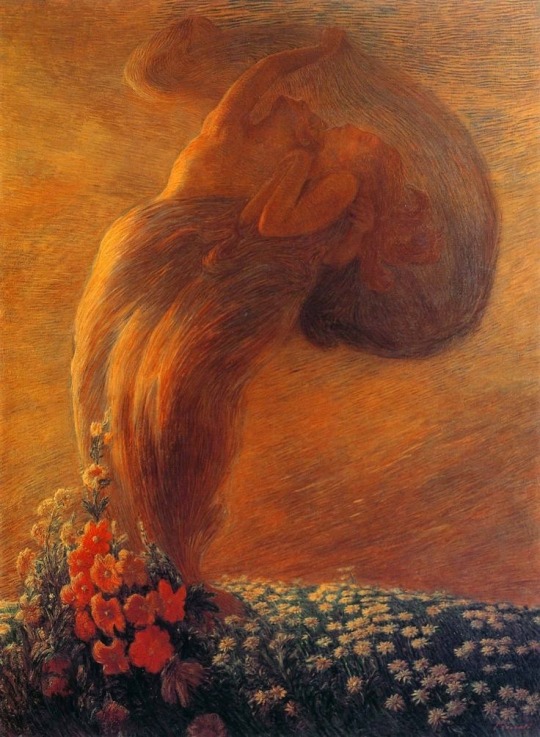
‘The Dream’ by Gaetano Previati, c. 1912.
#Gaetano Previati#vintage art#classic art#art#art history#old art#painting#art details#vintage#moody art#symbolism
379 notes
·
View notes
Text

Gaetano Previati- Funeral of a Virgin
27 notes
·
View notes
Text

Death of Paolo and Francesca 1887 ca. | Oil painting on canvas Gaetano Previati
Dante's Inf. V tells the tragic love story of Francesca da Rimini and Paolo Malatesta
Paolo Malatesta was the third son of the lord of Rimini, Malatesta da Verucchio. He was deemed by some to be a romantic sort, a man not really interested in the world around him, but there is evidence that he was indeed involved enough with the politics of the day to lend his sword arm in support of his father and his allies when needed. He was a handsome man with a winning nature. He was also married with children.
Francesca da Polenta (later Francesca da Rimini) was the beautiful young daughter of Guido, Lord of Ravenna, and as such, she was a valuable diplomatic pawn in the power games of Italian noblemen of the 13th century.
When Guido eventually found it expedient to make peace with his enemy, Malatesta da Verucchio, Paolo's father, he decided to seal the deal by marrying his daughter, Francesca, off to one of Malatesta's sons as a cunning political tie.
Unfortunately, his choice of husband had to be Malatesta's eldest son, Giovanni, who has been variously described as uncouth and deformed or crippled.
Guido realised that his romantic young daughter would not welcome such a man as her husband, so the handsome Paolo was invited to stand proxy for his brother at the wedding. Unfortunately, it would appear that no one told Francesca that Paolo was only the proxy.
Francesca had fallen instantly in love with the dashing Paolo and must have thought herself the luckiest girl in the world, so we can only imagine her feelings of horror when she awoke on the morning after her wedding night to find herself lying beside the 'deformed' Giovanni instead. Presumably it had been possible for the brothers to switch places in the darkened bedroom and the innocent Francesca had been cruelly duped.
One day the two were reading the tale of Guinevere and Lancelot, the Arthurian characters who succumb to their love for each other and engage in an extramarital affair that leads to the fall of Camelot. As Paolo and Francesca learned, how love had mastered Lancelot … they went pale, and caught each other’s glance. Coming to the part of the story where Guinevere finally gives in to Lancelot’s love for her, Paolo trembled to place his lips upon Francesca's mouth.
One day Giovanni found his wife's bedroom door locked and demanded to be admitted. He had been told of the affair by his servant and was determined to catch the lovers in flagrante. Paolo leapt towards a trapdoor in the floor as Francesca went to open the door and make her excuses for locking it.
However as she went to unlock the bedroom door she omitted to check that Paolo had actually made a clean getaway and closed the trapdoor behind him. Unfortunately his jacket had caught on the catch and he had been unable to free himself.
As soon as Giovanni came through the door he saw Paolo and ran at him with his rapier, despite the fact that it was his brother that he was about to kill. Francesca in a frenzy to save her lover threw herself in front of Giovanni's sword and was fatally stabbed. Giovanni, in his despair at inadvertently killing the woman he loved, withdrew his sword from her chest and then ran Paolo through with it, killing him instantly. It is said that the lovers were buried together.
#paolo malatesta#francesca da rimini#paolo and francesca#dantes inferno#dante alighieri#the divine comedy#literature#love#lovers#dark academia#gaetano previati#italian art#romanticism#19th century#art history#painting#oil on canvas#oil painting#art
68 notes
·
View notes
Text

Gaetano Previati (1852-1920), ‘Dance Of The Hours’ (Danza delle ore), 1899 :: [Guillaume Gris]
* * * *
“If you feel you ought to go, if I came to you at a moment when nothing could make you happy, if it's necessary for you to leave me now so that you may some day come back to me at peace, then it is I who ask you to go...” ― Alain-Fournier, Le Grand Meaulnes
18 notes
·
View notes
Text

My friends and I thinking about fictional men
12 notes
·
View notes
Text
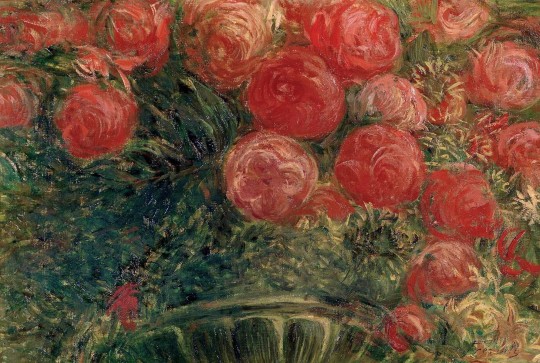
Gaetano Previati (1852-1920, Italian) ~ Flowers and Roses, 1912
[Source: ambrosiana.it]
188 notes
·
View notes
Text
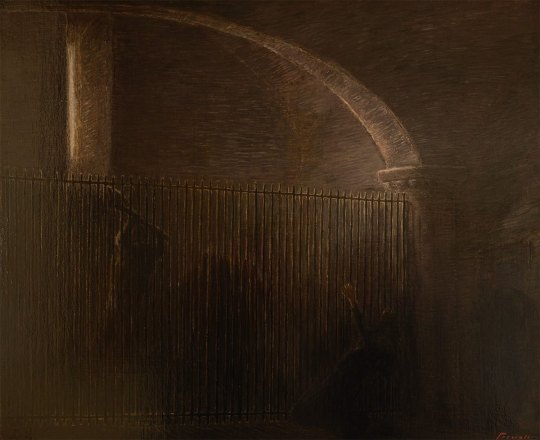
Gaetano Previati - Beheading of Ugo d'Este and Parisina Malatesta.
#Gaetano Previati#Beheading of Ugo d'Este and Parisina Malatesta#Beheading#Ugo d'Este#Parisina Malatesta#headless#dead#death
10 notes
·
View notes










